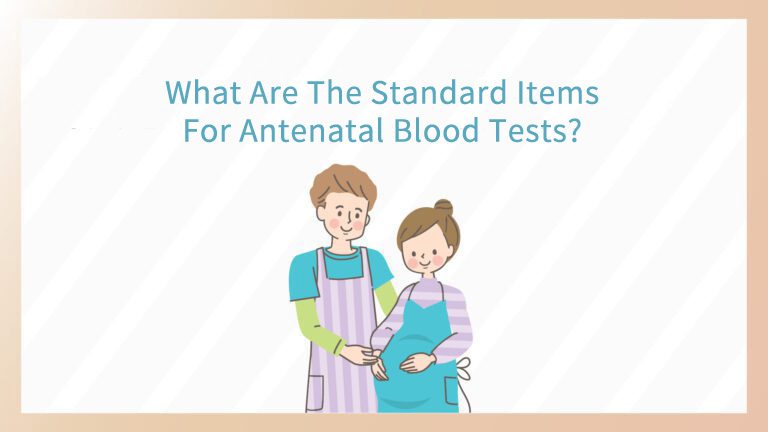Pregnant women shall pay special attention to their diet, not only to promote the health of themselves and their babies, but also to make sure no complications occur. Chinese tradition dictates many limitations concerning the diet of pregnant women. This article shall discuss these dietary concerns from a medical standpoint, so that women who are planning a pregnancy or who are already pregnant may have a better understanding of this topic.
A balanced diet should include daily intake of carbohydrates, fat, dietary fiber, protein, and a wide range of minerals and vitamins. Maintaining a healthy weight when trying for a pregnancy (BMI of 18.5–22.9kg/m2) is beneficial towards becoming pregnant and fetal development after pregnancy. It has been scientifically proven that an adequate intake of folic acid can reduce the risk of Spina Bifida (spinal defect) in infants. It is recommended that women who are preparing to become pregnant, or in their early stage of pregnancy, maintain a daily intake of supplement that contains no less than 400 mcg (0.4mg) of folic acid. Some women need to take a daily dose of 5mg of folic acid:
-
has had a previous pregnancy affected by Spina Bifida;
-
taking certain medications for epilepsy;
-
obese and her BMI is ≥ 30kg/m2;
-
has sickle-cell anaemia or thalassaemia;
-
in this case, the higher dose of folic acid will also help to prevent and treat anaemia;
-
either she or her partner has Spina Bifida.
Apart from the nutritional aspect, it is recommended that pregnant women consume more fresh, non-processed food. Folic acid can be found in green, leafy vegetables such as broccoli and cabbage. Iron can be found in red meat such as beef, lean pork, ostrich meat, or dark green vegetables such as spinach, fruits such as apple and grapes. Calcium can be found in milk, tofu, cheese and other milk products. Iodine can be found in seafood and seaweed. Protein can be found in eggs, fish, chicken, etc. Besides vitamins, fruits and vegetables also provide the body with dietary fiber, which can promote bowel movement and relieve constipation. Mothers may feel hungry more frequently, and when they do, they can snack on fruit, non-fried nuts, cereals or low-fat cheese. Eating a wide variety of food allows mothers to absorb a well-balanced range of nutrition. Mothers should also pay attention to the way the food is prepared. They should use a minimal amount of oil, salt and artificial seasoning when cooking. Of course, it is always important to ensure proper hygiene during food preparation and make sure the food is cooked thoroughly.
Women in the early stages of pregnancy often experience morning sickness, reduced appetite and vomiting. To alleviate these symptoms, mothers should try to avoid food that are greasy, and consume small meals in more frequent intervals. They can also try to eat a few biscuits or crackers to neutralize gastric acid and to reduce the discomfort. These symptoms should start to taper off after the first trimester. But if a mother experiences extreme vomiting that leads to dehydration, she may need to consider receiving an intravenous infusion injection in hospital to replace the fluid. When morning sickness symptoms reduce after the first trimester, mothers should regain some of their appetite. At this point, they should pay attention to weight management. It is recommended that for women with normal BMI between 18.5–22.9kg/m2, their weight gain should be maintained at 0.4 kg per week. Towards the end of the pregnancy, increasing size of the baby would cause pressure to the mothers’ stomach, resulting in a decrease in the stomach’s ability to empty itself, and hence the possibility of stomach discomfort caused by acid reflux. To alleviate such symptom, they should take frequent small meals, and avoid lying down immediately after food.
Pregnant woman should stop smoking and drinking, and limit the intake of food or beverages containing caffeine, as they may affect fetal development both physically and mentally, and increase the risk of miscarriage.
Pregnant woman should reduce consumption of large, deep sea fish such as shark, swordfish, and tuna. These fishes may contain mercury, which is a heavy metal that can cause chronic poisoning. Although its effect may not be immediate, it can cause damage to the central nervous system and adversely affect the baby mental development.
Pregnant women should reduce the consumption of food which contains high calorie, high sugar content, or heavy artificial seasoning, such as potato chips, cakes with heavy cream, chocolate, etc., to ensure no excessive weight gain.
Pregnant women should avoid processed or pickled food such as salted fish, processed sauces, instant noodles, etc. These food products contain a high level of sodium, which is not healthy. Avoid consuming uncooked or easily contaminated food such as sushi, cold-cuts, raw oysters, unpasteurized milk products, ice-cream, soft cheeses, etc. These food products can easily breed bacteria if not handled properly. If consumed, it may lead to diarrhoea or infection of the digestive system. If the food product is contaminated with Listeria Monocytogenes, it may even lead to miscarriage, premature birth, serious infection of the newborn or even intrauterine death. For peace of mind, exercise extreme caution to ensure that all food is thoroughly cleaned and cooked. Leftovers should be properly stored and reheated before consumption; and leftovers that has been stored for too long should be discarded.
Calculation of BMI and Recommended Weight Gain During Pregnancy
BMI = Body weight (kg) / Body height2 (m2)
|
Pre-pregnancy BMI |
Recommended weight gain |
Recommended weight gain |
Recommended weight gain |
|---|---|---|---|
|
Less than |
11.8–18kg |
0.4–1.8kg |
0.5kg |
|
Normal |
11.3–15.9kg |
0.4–1.8kg |
0.4kg |
|
Over Weight |
6.8– 10.5kg |
0.4–1.8kg |
0.3kg |
|
Obese |
<6.8kg |
0.4–1.8kg |
0.2kg |
|
Twins |
13.6–20.5kg |
0.4–1.8kg |
0.5–0.7kg |
For more information about diet and nutrition during pregnancy, please visit the Centre for Food Safety website:
Food Safety Advice for Pregnant Women
https://www.cfs.gov.hk/english/multimedia/multimedia_avr/files/fs16.pdf
Listeriosis and Pregnancy
https://www.cfs.gov.hk/english/multimedia/multimedia_pub/multimedia_pub_fsf_75_01.html






